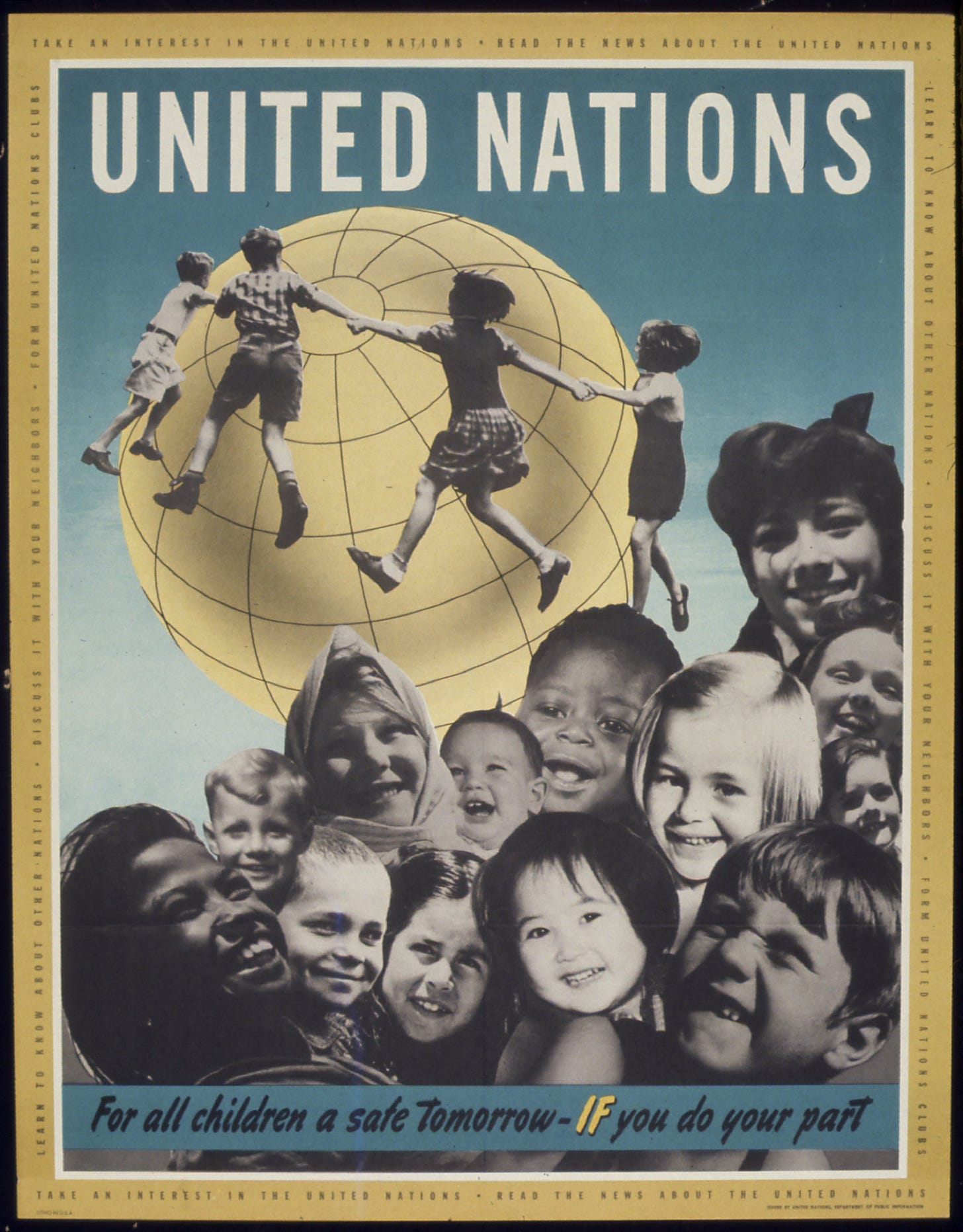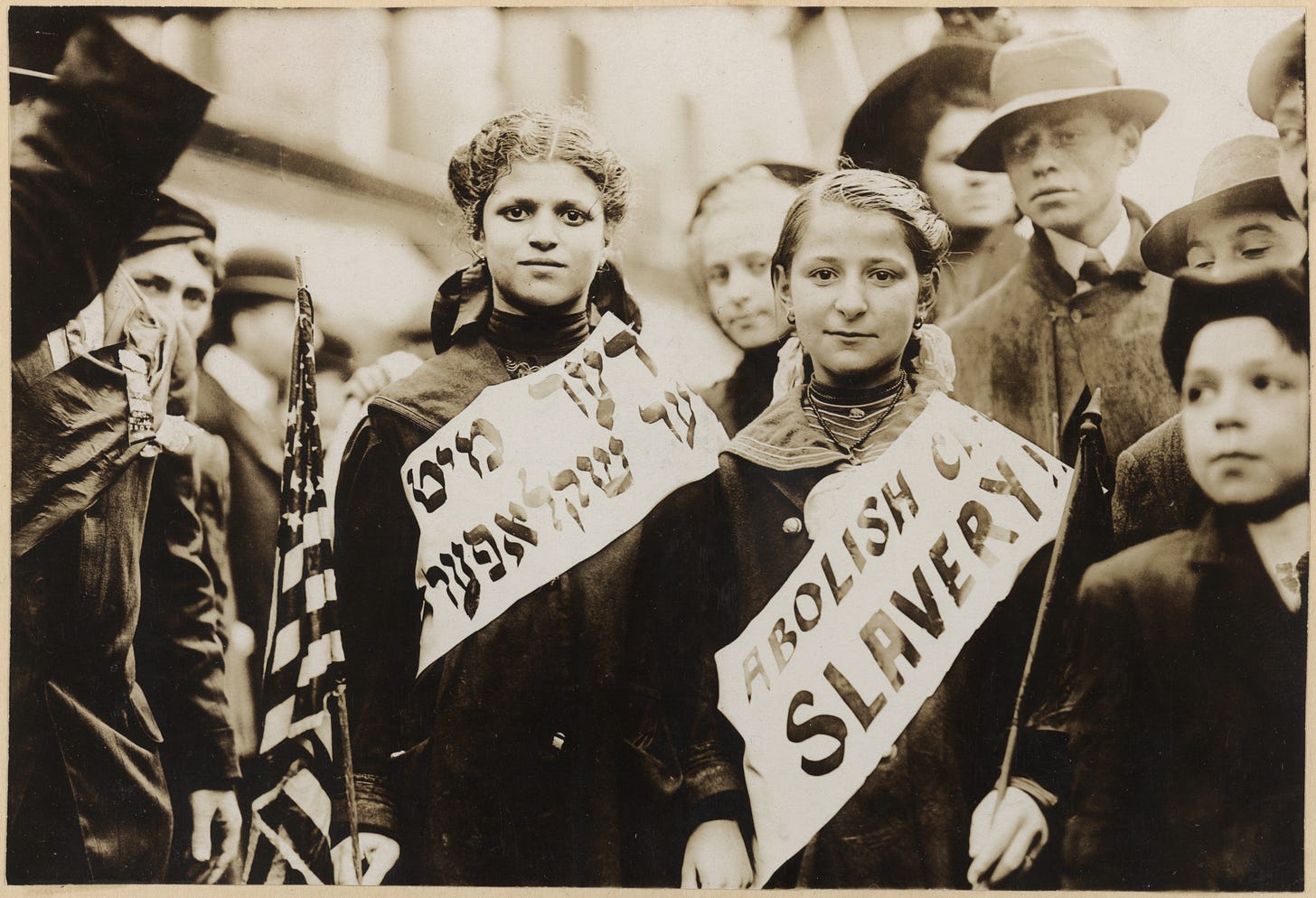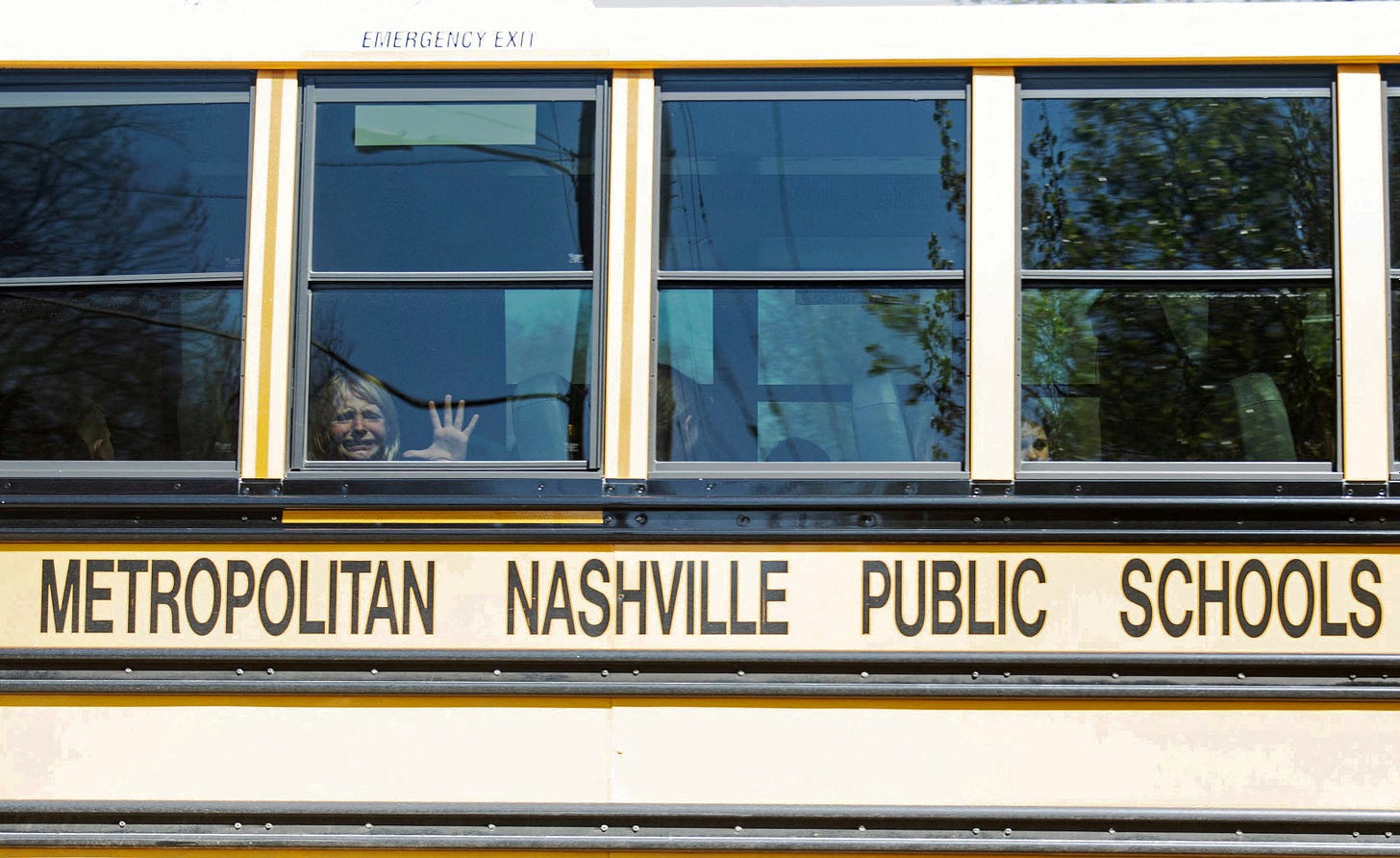On the Rights of the Child, Part I
As of this writing, every U.N. member state has ratified the Convention on the Rights of the Child but one: the United States.
Author’s note: this is the first installment of a series on right-wing attitudes in the U.S. towards the notion of children’s rights. Part two will follow in coming weeks, which takes us to a second note: Talia will be traveling throughout much of April. Between Talia and David, we’ll try to keep up a steady volume of posts… although perhaps not three times a week.
In November 1989, the General Assembly of the United Nations ratified an international treaty known as the Convention on the Rights of the Child. It was an effort thirty years in the making, expanding upon a 1959’s Declaration of the Rights of the Child—which, being a declaration rather than a treaty, did not require the individual governmental approval of member states. The 1959 document is simple—its ten principles take up a scanty two pages, even with a preamble—and in its simplicity, heartbreaking: a child is granted the right to a name. To a nationality. To an environment in which he or she is loved. Protected against neglect and cruelty. Guaranteed an education.
These are basic things, and the document is a specialized extension of 1948’s Universal Declaration of Human Rights, proclaimed by the U.N. in the aftermath of World War II. By 1959, the world at large and Europe in particular had endured the largest refugee crisis in history, in which a great many children had suffered namelessness and statelessness, cruelty and neglect. The 1989 Convention extended ten articles to thirty-one, largely extrapolations from the earlier, terser text: a child shall not be subject to torture; the jailing of a child should be a matter of last resort; children have the right to adequate medical care; to a free and compulsory primary education.
As of this writing, every U.N. member state has ratified the Convention on the Rights of the Child except one: the United States. (Somalia and South Sudan, the previous lone holdouts alongside the U.S., ratified the treaty in 2015.)
This is a stark reality, though it doesn’t mean that, inter alia, children enjoy freedom—from cruelty and neglect, from filicide and abuse, from educational deprivation and hunger—everywhere else in the world. Wherever there are children there will be those who are cruel to them. But the Convention on the Rights of the Child, or CRC, is an aspirational document—a set of standards which every other U.N. member state has agreed are worthy of adopting. Everyone except us. The CRC would require a two-thirds vote of the Senate to be ratified. It hasn’t come close.
The idea that children have rights that require enshrining separately from those of their parents is not a winning proposition in this country. In 1989, the George H.W. Bush administration staunchly opposed the CRC, refusing to bring it before the Senate. Dubya wasn’t much better: in the delicate wording of the Congressional Research Service, “the George W. Bush Administration did not support ratification of CRC, citing ‘serious political and legal concerns’ with the treaty. It questioned the impact of U.S. ratification on state and federal laws and argued that the treaty was at odds with the emphasis of the United States on the duty of parents to protect and care for their children.”
Neither Bill Clinton nor Barack Obama brought the CRC before the Senate, either, in light of Republican opposition; the mere specter of its ratification led former Arizona Representative Trent Franks to introduce a resolution “proposing an amendment to the U.S. Constitution stating that the ‘liberty of parents’ to raise and educate their children is a ‘fundamental right,’ and that no treaty may ‘supersede, modify, interpret, or apply’ this right.” In lieu of the rights of the child, the right has developed a parallel but opposing movement: the campaign for “parental rights.”
You may have seen an uptick in language concerning “parental rights” during the recent tidal wave of red-state legislation—laws that allow book banning in schools; bans on drag performance in public spaces; that prohibit schools from using preferred pronouns or even nicknames for a child without informing their parents first; that oppose compulsory vaccination. “Parental rights” is the pretext used by Astroturfed far-right groups like Moms for Liberty, militant opponents to sex education and consistent demonizers of trans-inclusive school policies. “Parental rights” is also the framing used in this excruciating interview with the president of a charter-school board that fired an art teacher for showing sixth graders a slide of Michelangelo’s David, on grounds that a tiny marble dick on a world-famous Renaissance sculpture is pornographic. (Not for nothing, the school is called the Tallahassee Classical School.)
“Parental rights” obviates the notion that society has a collective responsibility to secure the welfare of children, of course. As former Republican Presidential candidate Rick Santorum put it in a screed entitled “Children Belong to Parents, not Government” from 2013: “So we go from telling the small businessman that ‘you didn't build that’ to telling parents that ‘they don't belong to you!’ It harkens back to Marxism's trumping of the family in favor of the state.”
As construed by the American right wing, “parental rights” is the most milquetoast way of expressing absolute ownership by parents over children—that children are, in fact, their parents’ property, subject to absolute control, and not accountable to any standard outside the nuclear family unit.
If you don’t believe me, you can take a look at ParentalRights.org, a right-wing nonprofit whose president served in the Trump administration, and whose chairman is also vice president of the ultra-connected and deep-pocketed Homeschool Legal Defense Association. (Which could and perhaps shall be subject to fifty to seventy columns in its own right; it’s a hyper-litigious organization militantly against any regulation on homeschooling in the U.S., or—to put it in the language of the Convention of the Rights of the Child—they are lifelong fighters against the notion that every child should receive an education that is compulsory, adequate and free.)
The Sword and the Sandwich is a newsletter about serious extremism and equally serious sandwiches. Please consider supporting this work with a paid subscription:
The board of ParentalRights.org is stocked with a galleon of right-wing lawyers, legislators, Grover Norquists, and the president of Salt & Light Global, a ministry committed to “speak of Jesus in the public square” and “instill within the Christian community a correct understanding of and a respect for the following First Principles: … The Inalienable Liberty of Property, The Inalienable Right of a Man and Woman to Marry, Procreate, and Control and Direct the Upbringing of their Children.”
Unsurprisingly, ParentalRights.org really, really hates the Convention on the Rights of the Child. In a blog post from 2020, the site laid out its opposition in a way that—to my mind—speaks with a voice so grotesque it is best read to be believed. Here’s why children shouldn’t have rights, according to ParentalRights.org:
The first reason we must not ratify the CRC is the content of the treaty itself. While on the surface it appears to be a well-intentioned set of aspirations to bring freedom and safety to children around the world, the CRC contains some “poison pills” that we must not accept.
The worst of these is a provision that states, “in all matters concerning children, the best interest of the child shall be the primary consideration.
It sounds so reasonable. What could be better than “the best interest of the child,” right? But for the government to make “best interest of the child” its primary consideration, it must first decide what the best interest of the child actually entails. In our courts today, a judge or bureaucrat doesn’t get to make that determination without first finding that the child’s parents are unfit (abusive or negligent). Until then, American law presumes that “natural bonds of affection lead parents to act in the best interests of their child” (Parham v. J.R. ,1979). So who decides what your child’s “best interest” is? You do, not the government.
The CRC would change that by removing this presumption favoring parents. There are other poison pills in the treaty, as well, such as a child’s “right to access information,” which could be used to override a parent’s efforts to protect their child from pornography, or other harmful web content; or a “right to access to medical care,” which can be used to cut parents out of their child’s medical decisions even more than they already are… Thank you for standing with us as we protect parental rights from all threats to the family, including those that come from international law.”
Three kids were shot and killed in school yesterday, and ParentalRights.org had nothing to say about it. Freedom from cruelty or danger or access to healthcare or not being locked up in solitary in juvie are all more or less irrelevant to this movement, whose sole principle is control. Incidentally, child labor is back, in a big way. So much for education.
So many potential abuses are permitted under the aegis of parental rights, the mind reels: physical abuse and sexual abuse; the deprivation of education under the guise of homeschooling; and the denial of any outlet, in school or otherwise, to talk about what’s happening at home. It also enables child marriage, which is already legal in 43 states. According to advocacy group Unchained At Last, “nearly 300,000 children as young as 10 were married in the U.S. between 2000 and 2018—mostly girls wed to adult men.” Children are not allowed to file for divorce. They must do it through a legal guardian. That’s “parental rights” in action.
This is their world, where the notion that disabled children are entitled to care is anathema. We’re living—we’re dying—in it. They are loud, and legion, and militantly opposed to Michelangelo’s David and drag queens, and they’ve been working toward this moment for longer than I’ve been alive. They have an army of rotten, clean-cut Christian lawyers to carry it out, and they make us rot alongside them.
Sometimes you have to say what you mean, and I mean this: kids should have rights. Should not be raped by their pastors or parents or uncles and have no recourse at all. Should have support external to the family; and privacy, even. Are not property. Should not be nameless, or stateless, or forced into marriage, or shot in homeroom, or denied vaccination against measles and rubella. Children should have rights, even when—especially when—their best interests supersede the desires of their parents. I do believe we have a collective responsibility to ensure that, though we may be the only country in the world that disagrees.










Thank you for this. I think this ideology may partially explain why my state legislature killed a bill to modestly expand free school lunches. https://www.inforum.com/news/north-dakota/by-one-vote-north-dakota-senate-rejects-school-lunch-funding-for-low-income-kids
Thank you for this series. I read your Ministry of Violence series when it came out and it was incredibly cathartic to see someone taking the issue of Christian corporal punishment seriously. No doubt that’s an unspoken part of the opposition to the CRC. The way this country treats children is abominable.